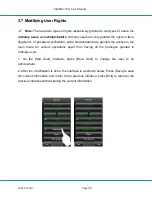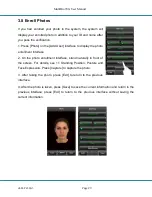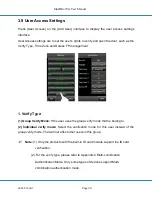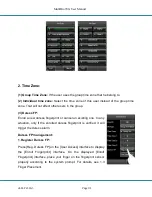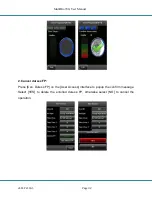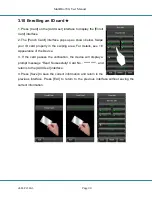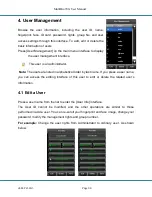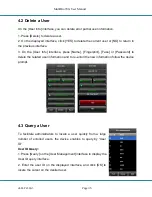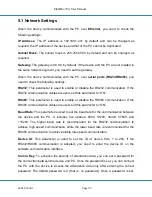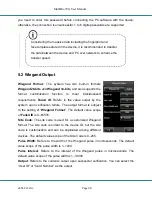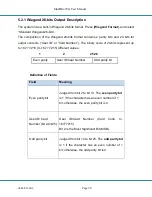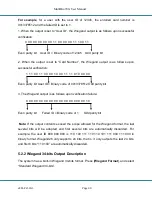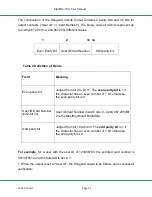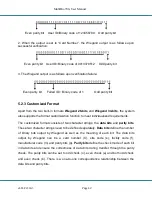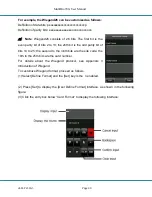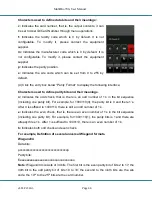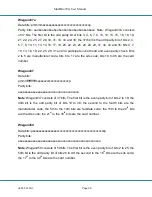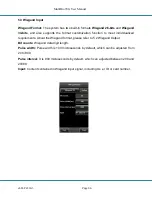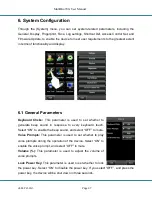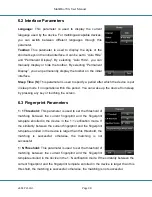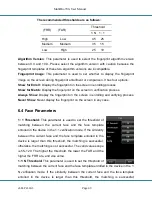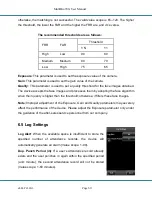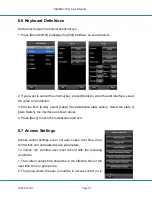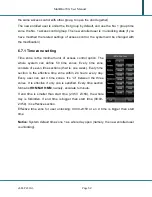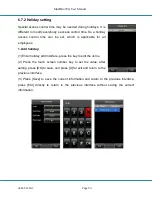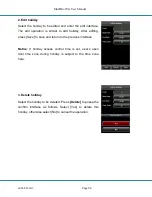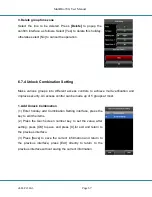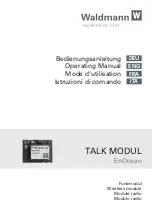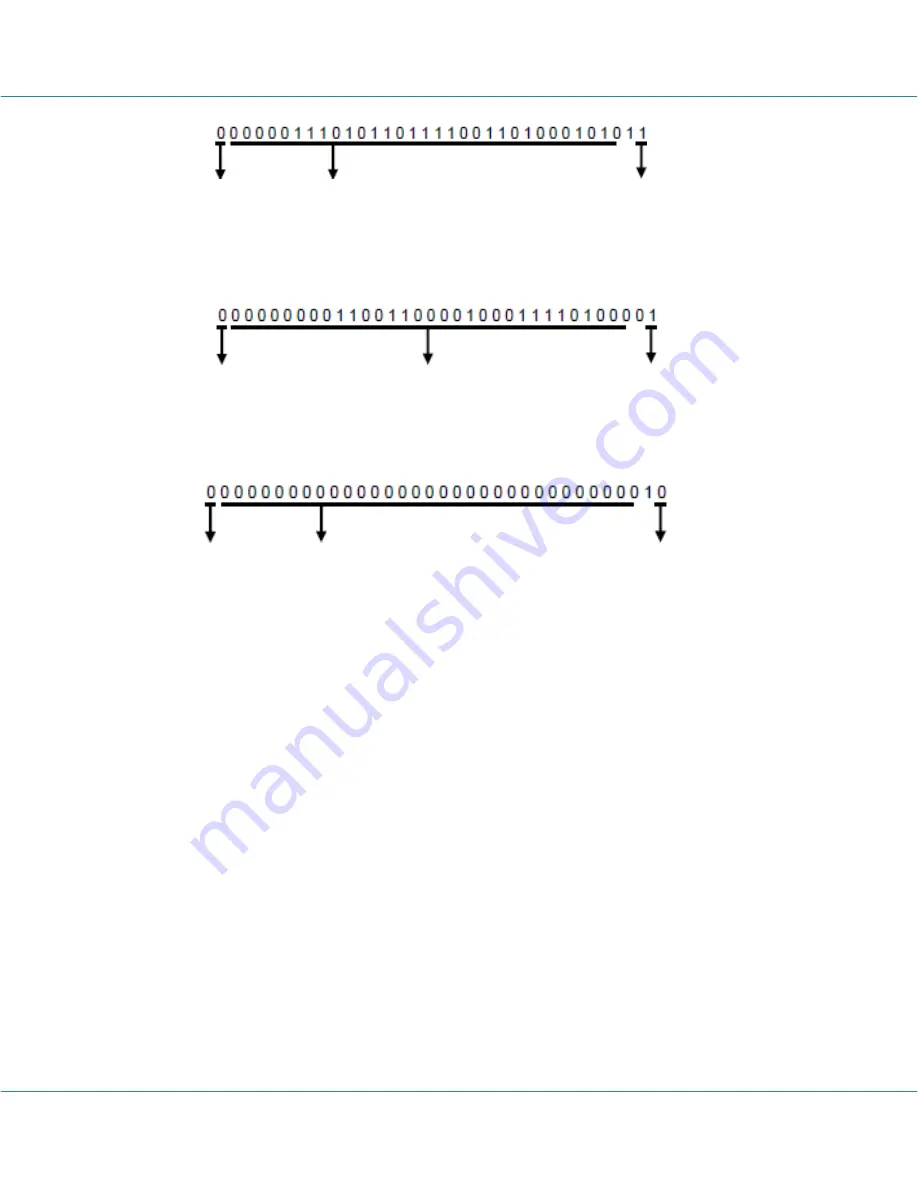
MultiBio700- User Manual
eSSL Pvt. Ltd.
Page 42
Even parity bit User ID=Binary code of 123456789 Odd parity bit
2. When the output is set to “Card Number”, the Wiegand output is as follows upon
successful verification:
Even parity bit User ID=Binary code of 0013378512 Odd parity bit
3. The Wiegand output is as follows upon verification failure:
Even parity bit Failed ID = Binary code of 1 Odd parity bit
5.2.3 Customized Format
Apart from the two built-in formats
Wiegand 26-bits
and
Wiegand 34-bits
, the system
also supports the format customization function to meet individualized requirements.
The customized format consists of two character strings: the
data bits
and
parity bits
.
These two character strings need to be defined separately.
Data bits
define the number
of binary bits output by Wiegand as well as the meaning of each bit. The data bits
output by Wiegand can be a card number (C), site code (s), facility code (f),
manufacturer code (m) and parity bits (p).
Parity bits
define the check mode of each bit
in data bits and ensure the correctness of data bits during transfer through the parity
check. The parity bits can be set to odd check (o), even check (e) and both odd check
and even check (b). There is a one-to-one correspondence relationship between the
data bits and parity bits.

